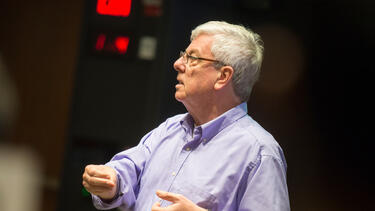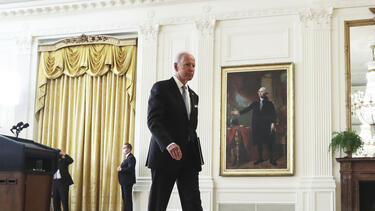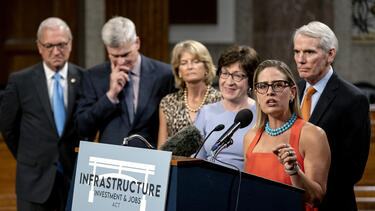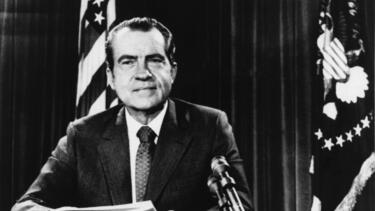Politics and Policy
How Should Business Leaders Respond to the U.S. Military Operation in Venezuela?
Yale SOM leadership expert Jeffrey Sonnenfeld provides CEOs with advice and factors to consider in the wake of the capture of President Nicolás Maduro and his wife, Cilia Flores.

Controlling the Virus Is the Key to Reducing Inflation
Yale SOM’s William English, a former economist at the Federal Reserve, explains the role of COVID-19 in the spike in prices, considers how policymakers can respond, and confronts the sheer uncertainty of the times.

Without a Local Newspaper, Americans Pay Less Attention to Local Politics
Prof. Michael Sinkinson and his co-authors look back at when television, not the internet, was the new technology chipping away at newspaper circulation. They find that when readership diminished, engagement with local politics did too.

Exploring Alternative Futures
Professor Paul Bracken has spent a lifetime studying the complex systems like international business, technology, and the military. A pioneer of scenario planning, he looks at how organizations really work and how they both drive and are shaped by major trends in order to predict possible futures.

COVID Outcomes in Two States Show That Leadership Matters
Yale SOM’s Anjani Jain and Jeffrey Sonnenfeld on how the rhetoric and policies of Governors Ron DeSantis of Florida and Ned Lamont of Connecticut have shaped their states’ responses to the resurgence of COVID-19—with profound implications for their constituents.

When Should CEOs Speak Out?
Many corporate leaders are overcoming their hesitancy about wading into divisive social issues. Prof. Jeffrey Sonnenfeld offers some guidelines for when and how business leaders should weigh in.

What Went Wrong in Afghanistan?
We asked Prof. Paul Bracken, an expert in business and military strategy, how the U.S. could have avoided a chaotic exit from Afghanistan, and what comes next for the region.

We Need to Acknowledge the Problem of Senior Poverty
Joe Seldner ’84, founder of the Senior Poverty Prevention Project, calls for problem solvers to take on an issue getting little attention.

Leadership Lessons for Biden after the Afghanistan Withdrawal
Yale SOM's Jeffrey Sonnenfeld offers advice for the president on recovering from his missteps, drawn from Sonnenfeld's decades of studies of business and political leadership.

The Compromise Infrastructure Bill Reflects the Public’s Priorities
The infrastructure bill that advanced in the Senate this week doesn’t please partisans on either side. But an analysis from Yale SOM’s Jeffrey Sonnenfeld shows a rough correspondence with the objectives favored by the public in polls.

How the ‘Nixon Shock’ Remade the World Economy
In a new book, Yale SOM’s Jeffrey Garten explores Richard Nixon’s decision to delink the dollar from gold, which remade the global monetary system in an instant.
